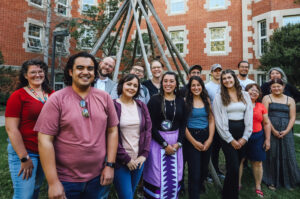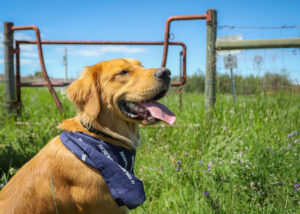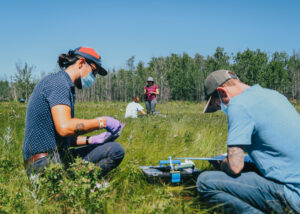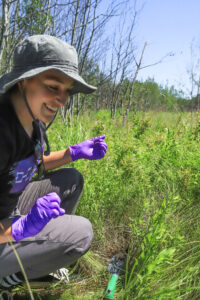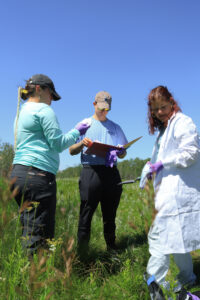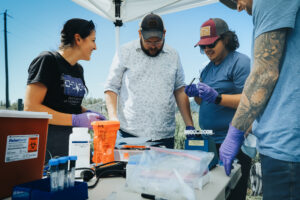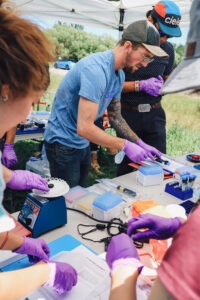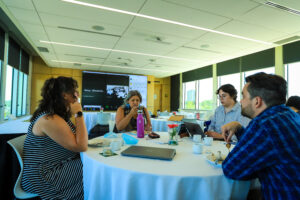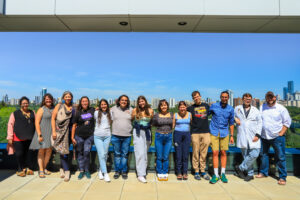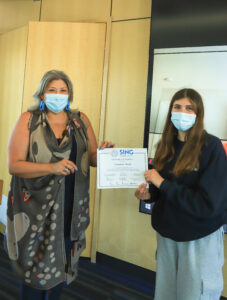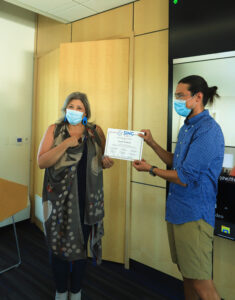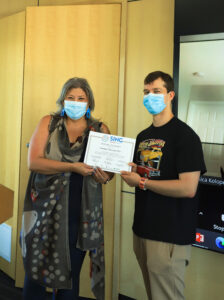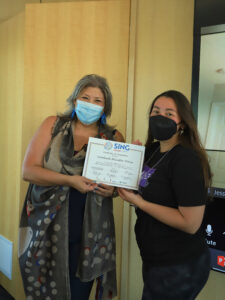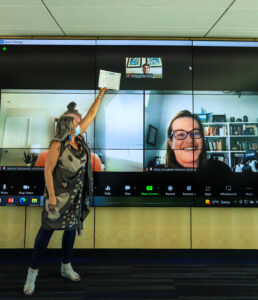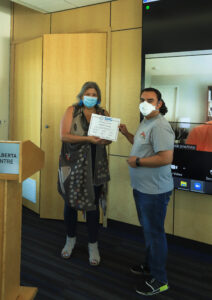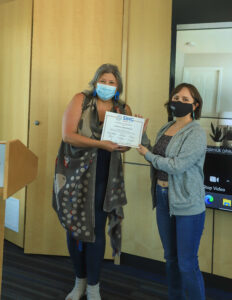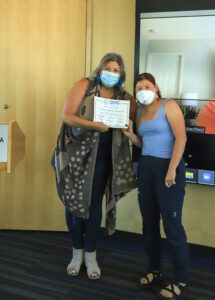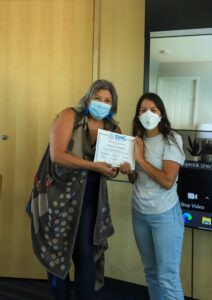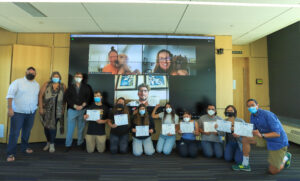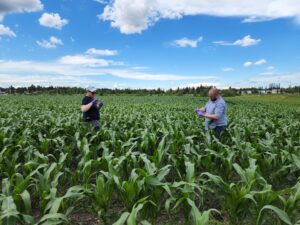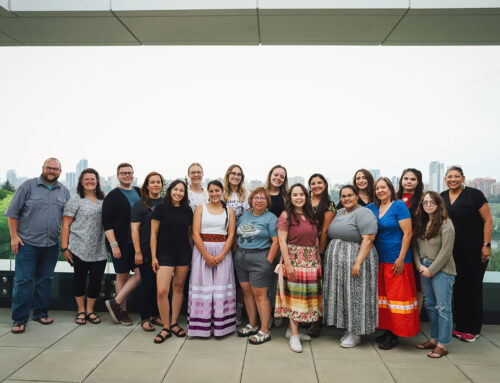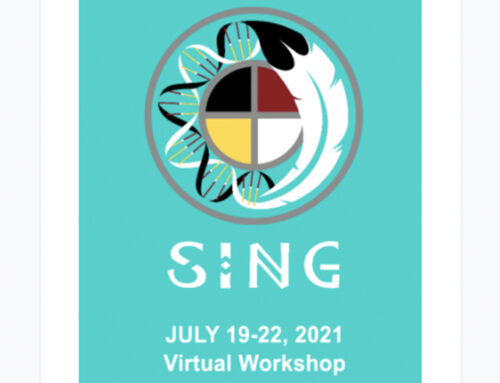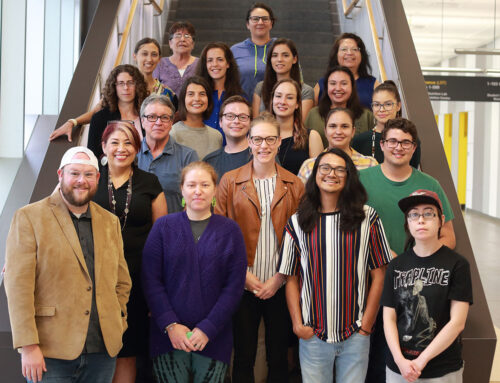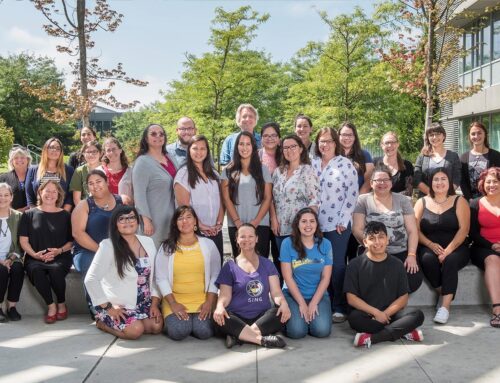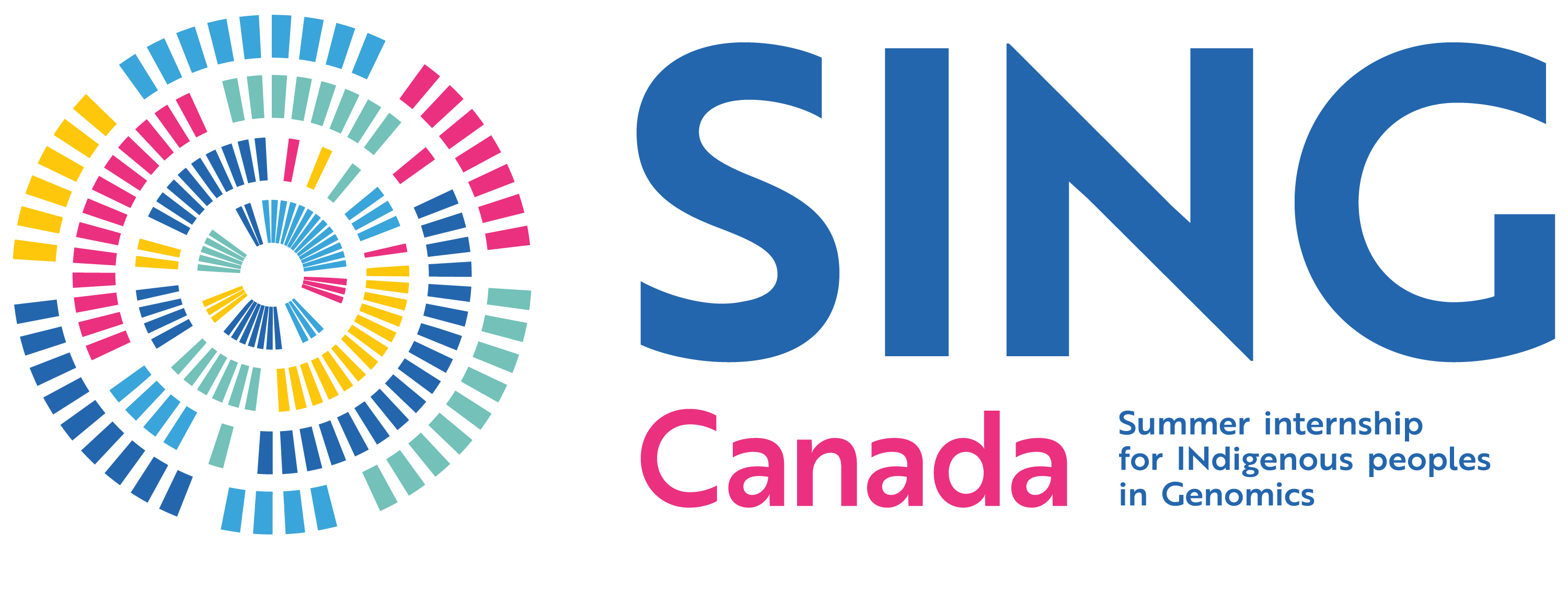2022 Workshop
#LandBack: Indigenous Peoples, Soil Science, and Disruptive Sequencing Technologies
In 2022, our program undertook an unprecedented and multi-locale comparative soil microbiome analysis with the goal of integrating Oxford Nanopore MinIon sequencing technologies. Given the pandemic-induced need to conduct research and training remotely, a focus on portable sequencing technologies provided an opportunity to train advanced students in ways that are also well-suited to community-based Indigenous research.
With both an in-person and remote delivery, the goals of the workshop were to introduce participants to mobile sequencing technologies and their role in metagenomic soil science. Participants learned the techniques of identifying soil microorganisms from their DNA, assessing their relative abundance, and comparing metagenomic composition across the different collection sites where our participants are located.
Participants were trained in these approaches through the prism of an Indigenous relational research methodology. Soil composition was considered in a framework that understands human and land-based relations as being shaped by, but not limited to state, provincial, and national borders. Participants also considered the ways that mobile technologies might expand Indigenous governance in their territories through the use of genomic technosciences. They assessed their potential to unsettle and thus productively transform the conventional genome “lab” by shifting the spatial and disciplinary contours of scientific knowledge production and enabling another pathway for Indigenous-centered genomics.
Eve Tuck and K. Wayne Yang tell us that decolonization is not a metaphor, but rather it is about the return of Indigenous life and land. We acknowledge that there is no outside of colonial power in the genome lab as we know it. By exploring the multiple meanings of #LandBack, we seek to intervene in the ways that the genome lab has been central to colonial processes of Indigenous racializations and ongoing dispossessions, and is therefore a site in need of reinvention. Decolonizing genomics therefore requires for us to 1) operate beyond the physical, disciplinary, and methodological bounds of the lab; and 2) orient transformative pathways among STEM fields in ways distinct from increasing calls for equity, diversity, and inclusion (EDI) to, instead, hold Indigenous land, life, and relations (in a word, governance) centrally.

